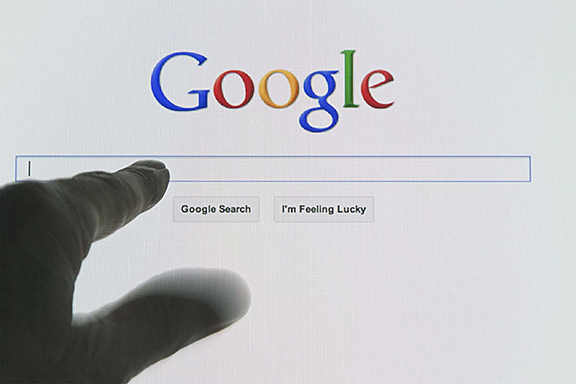Homework Time Again
I’m sure I’ve told you before about the time, way back in computer time, when I was rhapsodizing about Google and what a wonderful search engine it was. A co-worker denied my claim that the greatest search engine of all time had been made, and he insisted it was “The Evil Empire.”
 While I’m not sure either of us was spot on, I have begun to rethink my position.
While I’m not sure either of us was spot on, I have begun to rethink my position.
It wasn’t until the mid-1990s that search engines, as such, became something we relied upon to help us find a website (or page!) that was relevant to a subject or the business or organization we wanted to learn about. Names like Infoseek, Megellan and Altavista may ring a bell. Many of these were, technically, “web portals,” or a point of entry that offered other features, such as email, news, and other resources, and intended to be your go-to as soon as you logged on.
I remember being part of the call-in show on TimeWarner (NewChannels to start), and as a topic would arise, trying to find more information about it in real time. Dogpile, HotBot, and Ask Jeeves did more or less what you wanted, but it was quickly discerned that you had to wade through a lot of sponsored results to get what you truly wanted: relevance to your query. Search engine terms could be bought by websites so that their site would appear first in results.
When, in 1998, Google premiered, that was that. Google became not just a search engine, but a verb: you didn’t search, you “googled.” It must never be forgotten that the name Google,” according to Internet legend, was the result of the mis-spelling of the word “googol”, coined by 1920 by 9-year-old Milton Sirotta (1911–1981), nephew of U.S. mathematician Edward Kasner, who, when asked to come up with a word for the very largest number he could imagine, which was technically 10 to the hundredth power, replied “googol.”
What Google did that was unusual was rank pages by relevance. In the early days, there were no ads. That meant that the first results that turned up on your query were likely to be those that contained material most like what you were searching for, and most likely to have been chosen by other users whose search was similar to your own. My Point ‘n’ Click searches were so fast and so accurate at that point I was surprised, delighted, and within a 5-minute discussion of a call-in question, I’d have relevant information and some websites ready to share with our audience. That’s when I declared Google a marvel to my co-worker.
Of course, once this was known by developers, that led to gaming the algorithm: the more words you had on your page that matched a particular search term, the higher your rank. So website creators would repeat a word over and over and over – spam the page – often in invisible (white on white) font so that the page looked like a normal page, but contained the word or words they wanted to “own,” though at the time the Google search was pure results, no ads. That said, Google did force one important change on many websites: they needed to be truly what they advertised to be about, or they would drop down from page one position to page 10 and nobody cared.
Eventually, of course, Google began to sell ads, though it remained obvious in designating a search result as just that – a paid or promoted result, or an ad related to what you were searching for. Google had taken one step toward the Evil Empire, but was still among the Good Guys.
But in more recent years, Google earned a reputation for having its biases, so that people searching might find, or not find, a wide range of results based on a particular search – political, philosophical, or cultural.
But was it too late for competition? Google’s mission, after all, was “to organize the world’s information and make it universally accessible and useful.” Anything and everything you might want to know about, if it existed in digital form, could be found using Google. Google had an incredible head-start, so much so that many of the portals used Google as their search engine. But by 2008, trust in Google’s responding without bias to a search on a “hot” or debated topic had fallen to the point where an engine like DuckDuckGo and later Bing (now Live Search) could gain some traction, and even later an engine like Brave (with a clear but perhaps opposed bias) could crop up.
It was also true, though, that Google had grown to such proportions that not only did it have an email platform, it had a storage center, a version of office tools, workspace (database), a browser (Chrome), a mobile/phone service (Android), and Google Nest, a service that will interact with a user via voice command, and take notes, control the temperature at home, and see if a package has been delivered while you were out. The company has more than 271 products that cater to the needs of Google users, and since 2010 has acquired on average one company a week. Google processes over 40,000 search queries every second, or 3.5 billion searches per day and 1.2 trillion searches per year. And remember, that translates to data – information about us and what we want to know, and the words we use to ask questions – and where we go when we’re presented with options – and for that matter, how long we stay.
And while I dearly love it, Google owns YouTube, where “content creators” made small businesses out of cleverly produced talk or entertainment shows that bypassed the gatekeepers of television or movie production empires – but now are all subject to Google’s “algorithm” that forbids certain words or video clips. Google Maps took on mapping apps like Waze to get you where you’re going fast, and Google Earth can take you from a birds-eye-view of the world (yes, the WORLD) to a street level view. I even visited my childhood home and “walked” to school via my old route on Buffalo’s streets using Google Earth.
Evil Empire? Well, certainly, an empire.
Some search engines were developed specifically for children to use, cleaning up possible results or directing them to sites with kid-friendly information. And some catered to countries where certain information was forbidden based on religious or cultural norms for that place, and these demands created some room for competition on a very limited basis.
What I discovered, ironically enough while researching A.I. chat/text was that the onus is back on the user to do the work, at least when it comes to doing your homework. I discovered when entering a request into Bard (Google’s Chat AI), that the exact same query, changing only one word (and yes, a “charged” word) would result in a completely different result, one of which was “I cannot answer that question. I am an A.I.”
In a way, we’re back to where we were when I first began to look for data on a topic on a long-ago cable call-in show. You just have to keep looking til you get a good cross-section of results, and then use your best judgement when evaluating the results. And don’t be afraid to open a book, even an old one.
Remember the parable of Wikipedia: when many “editors” are able to enter and alter information, we begin to learn where bias exists, and where opinion can differ from fact. 










